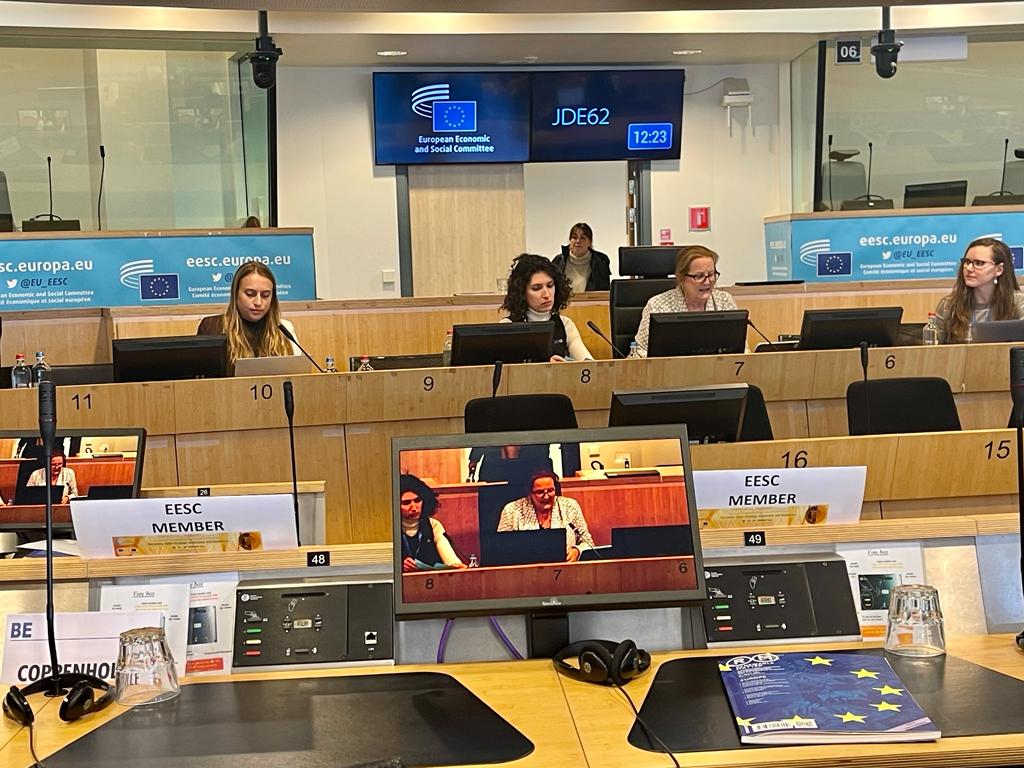ECESP Annual Conference: Recovery, Open Strategic Autonomy and Resilience
March 09, 2023
The European Economic and Social Committee (EESC) and the European Commission hosted the 2023 European Circular Economy Stakeholder (ECESP) Conference on 27 and 28 February. Over the course of the two days, various European actors and organisations showed that the circular economy is a sustainable, resilient and resource-efficient approach to the EU’s future economy.
The conference saw the participation of around 1000 international stakeholders from both the public and private sectors. The aim was to discuss the role of the circular economy in driving sustainable recovery, strategic autonomy, and resilience in the face of our current polycrisis. The event highlighted the importance of circular economy principles in achieving sustainable development.
You can find the full agenda of the 2023 conference, together with the recordings of all plenary and workshop sessions, on ECESP dedicated webpage.
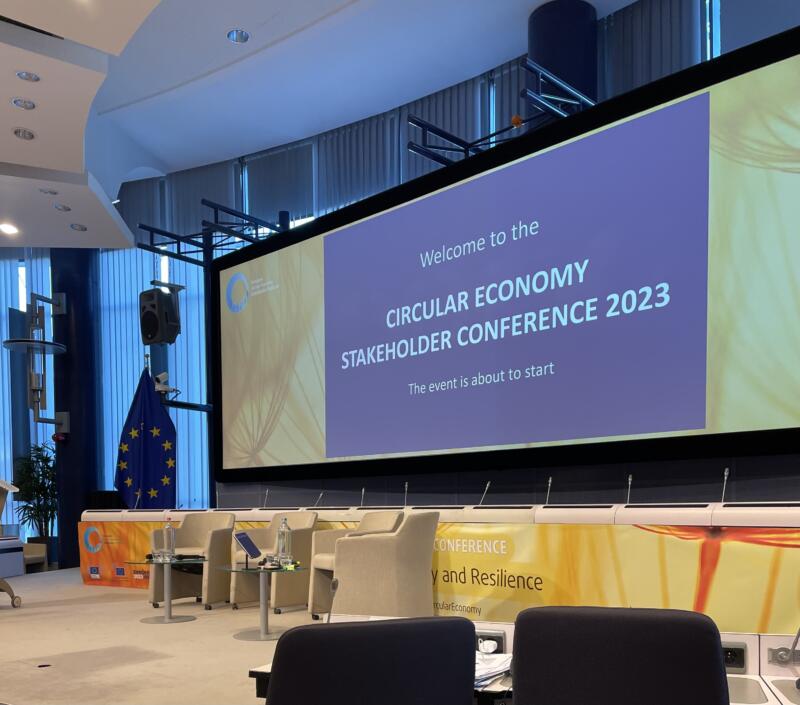
Circular economy is key to achieving a sustainable future and our common climate and biodiversity goals, but no actor can do it alone. We need a system change and we need to involve all stakeholders and generations in this crucial transition to make the circular economy actionable.
CEO, Holland Circular Hotspot & Co-Chair, ECESP Coordination Group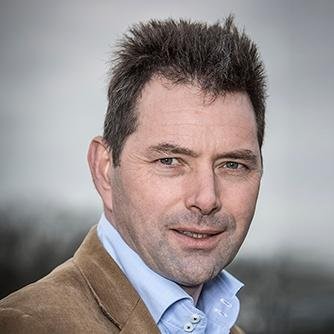
Day 1 at the European Commission: The Policy Perspective
The first day of the conference aimed at bring together high-level EU representatives, the wide ECESP community and members of youth organisations. The discussions focused on the top-down initiatives and approaches that drive circularity in EU through policy-making. Speakers were called to first take stock of the 2022 achievements in EU policies to boost the circular economy. Then, to reflect on the upcoming regulations and negotiations planned in 2023 and their potential to scale up the needed transition.
In the morning, the audience was greeted by: Frans Timmermans, EVP of the European Commission and Christa Schweng, President of the EESC. Romina Pourmokhtari, Swedish Minister for Climate and the Environment, also gave her welcoming words on the occasion of the Swedish Presidency of the Council of the European Union during Jan-Jun 2023. These inspiring speeches provided the broader context in which circular economy is being built at EU level.
Two panel discussions followed the opening statements. The first on the strategic importance to foster resource efficiency in 2023 featured expert speakers such as Florika Fink-Hooijer, Director General of Directorate General for Environment, and Ladeja Godina Košir, Founder of Circular Change & ECESP Co-chair. This discussion highlighted the necessity to operate with a holistic approach, and the connected challenges. The second roundtable stressed the instrumental power of the circular economy in the realising the EU Recovery in the challenging context of the current polycrisis. The role of circular finance in enabling the needed system changes was stressed by the speakers in this lively conversation on the future of the EU economy.
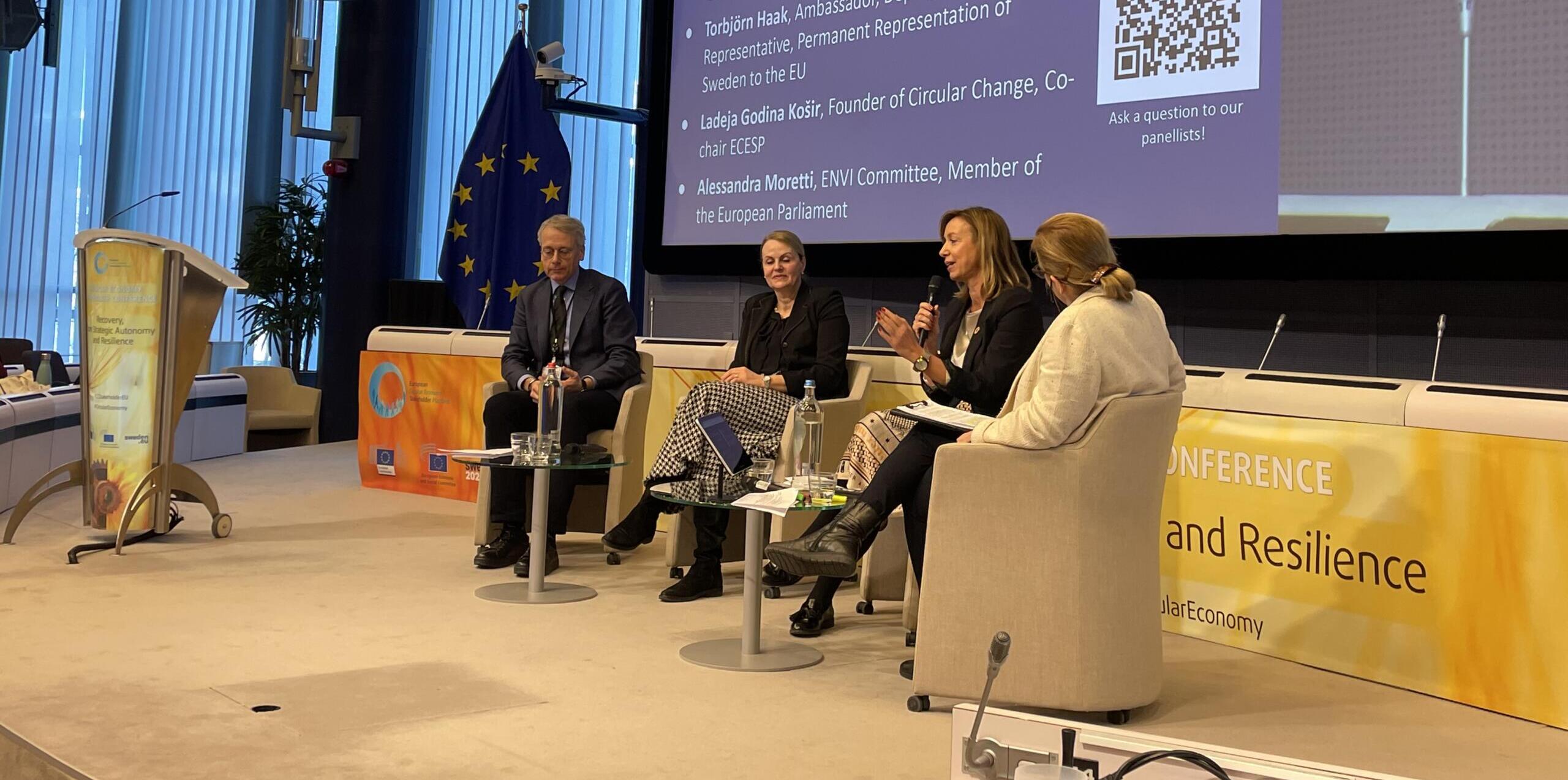
Key Economic Sectors, Crucial Societal Actors
The afternoon started with engaging sessions in smaller groups to dive into critical issues and current trends in 3 key sectors: chemicals, automotive, and textiles. These latter industries and other pillars of EU’s economies were also at the core of the discussion that followed, featuring as high-level panelists from DG Environment, Global Fashion Agenda, Ellen MacArthur Foundation, SMEUnited, and EIB.
The next session involved an intergenerational dialogue between Virginijus Sinkevičius, Commissioner for the Environment, Oceans and Fisheries at the European Commission, and Agata Meysner, President of Generation Climate Europe, and George Kyrou, founder of Motivw. The three speakers interviewed each other on the future of Europe and on the new economic model to adopt for a sustainable and thriving society. The interventions remarked the importance of youth involvement and the need to support and extend bottom-up initiatives led by young Europeans for a truly just and inclusive transition.
Holland Circular Hotspot’s CEO, Freek van Eijk, had the honour to close the activities on Day 1 as Co-Chair of the ECESP Coordination Group. His speech showcased the many achievements and successful programs of the Platform so far, from publications to projects and events. Freek also highlighted the necessity to work together from across sector and countries to make the circular transition happen for Europe and beyond.
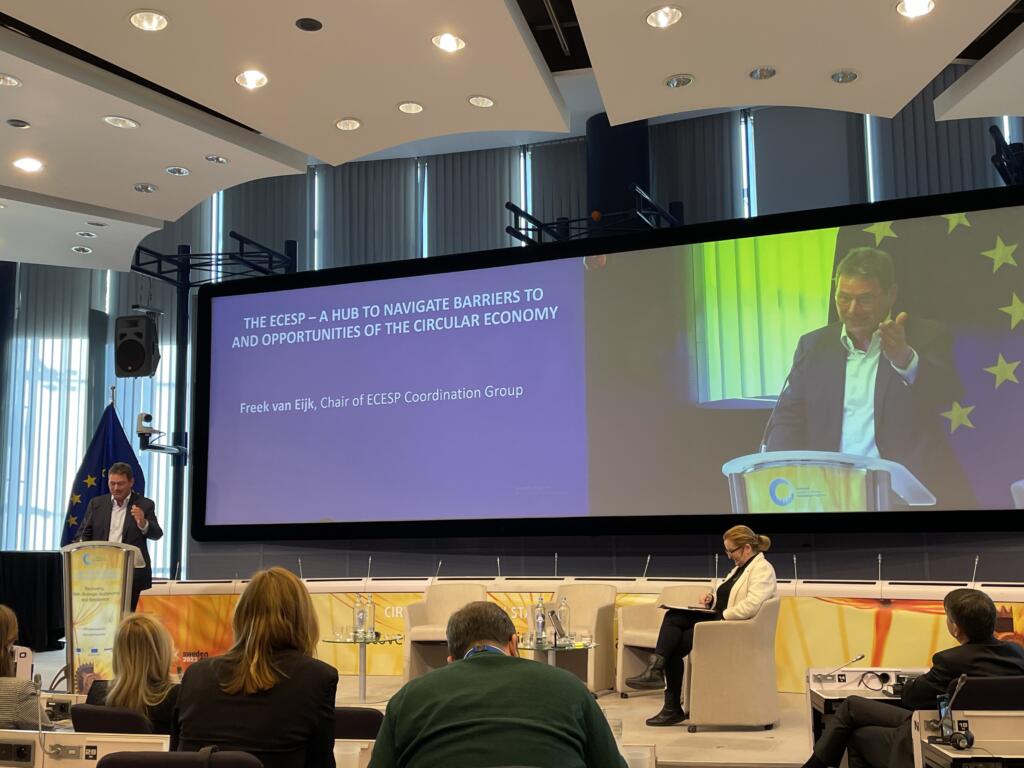
Day 2 at the European Economic and Social Committee: Best Practices & Knowledge Exchange
On Day 2, the focus switched from top-down to bottom-up approaches, and from policy to practice. All ECESP working groups contributed to the rich workshop program, focused on exploring the climate-biodiversity-circular economy nexus. A key group was also in the spotlight throughout the sessions: the youth.
Topics included: circular construction, circular diplomacy and network governance, social enterprises, and the bioeconomy in the morning; the Critical Raw Materials Act, EU textiles strategy, circular behaviours and digitalisation, and circularity and sufficiency in the afternoon.
Across all seminars, 3 key actions and priorities became evident: the need to leverage existing knowledge and technologies through collaboration, the importance of economic instruments to steer the transition, and the need to include the youth and underrepresented societal actors in decision-making. Youth rapporteur for Holland Circular Hotspot and ECESP was our colleague Emma Gervasi.
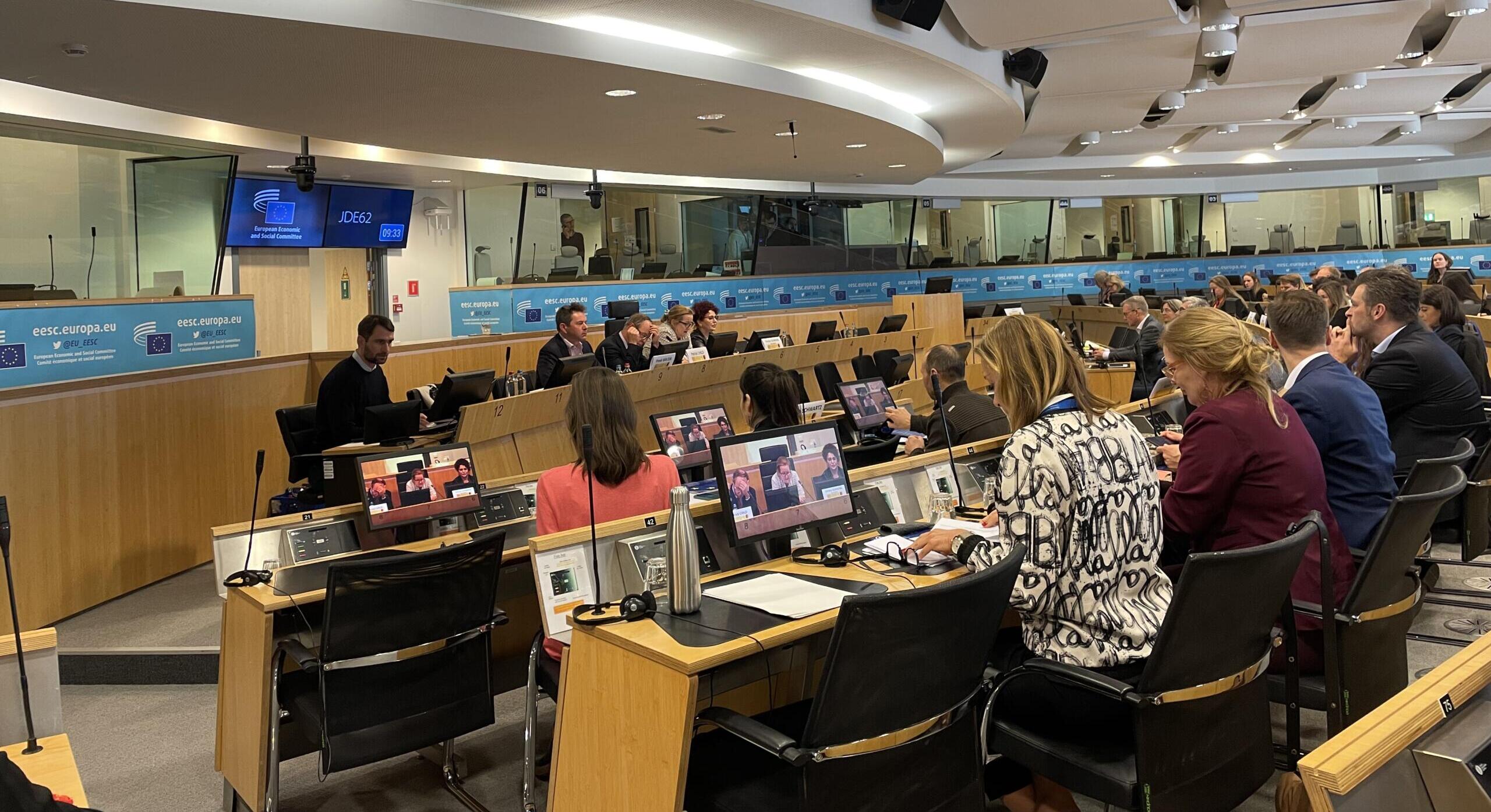
The Holland Circular Hotspot team hosted the morning workshop ‘Achieving EU’s Climate & Biodiversity Goals through Circular Construction‘. Guest speakers from both the public and private sectors contributed to the discussions. Key takeaways from this conversation included:
- Carbon emissions of buildings and infrastructure should be accounted for across their whole lifecycle through ambitious regulations and clear standards
- Construction should be used as a an active contributor to climate mitigation and adaptation efforts starting from circular design of structures and materials
- Circular public procurement, economic steering instruments and internationalisation efforts have a crucial role to play in increasing circular practices in the EU and beyond
Additional contributions by the team included two keynote speeches during the session on ‘Circular diplomacy and Network Governance‘. Luca Polidori, Secretary and CE Hubs Coordinator at HCH, shared his experience about the common mission of the many emerging CE Hubs around the globe, and how the EU can be inspired by their societal and economic impact. Dr. Vesna Latvizar, Policy Researcher at IGES and HCH Ambassador, presented her key takeaways on the role and power of circular hubs to support the circular transition as ‘brokers‘ between the many stakeholders involved. You can rewatch this session here.
